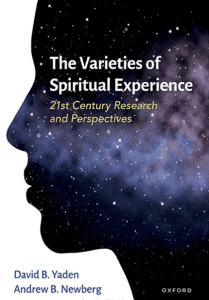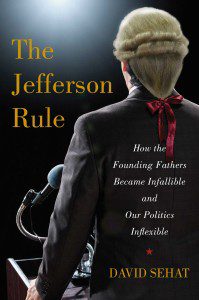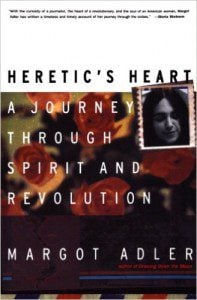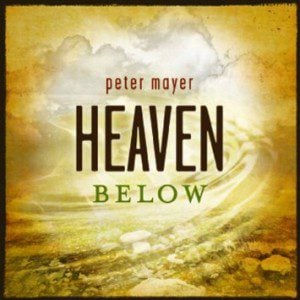Does the universe have a purpose? I am not sure. Anyone who expresses a more definitive response to the question is claiming access to knowledge not based on empirical foundations…. To assert that the universe has a purpose implies the universe has intent. And intent implies a desired outcome. But who would do the desiring? And what would a desired outcome be? That carbon-based life is inevitable? Or that sentient primates are life’s neurological pinnacle? Are answers to these questions even possible without expressing a profound bias of human sentiment? Of course humans were not around to ask these questions for 99.9999% of cosmic history. So if the purpose of the universe was to create humans then the cosmos was embarrassingly inefficient about it.
And if a further purpose of the universe was to create a fertile cradle for life, then our cosmic environment has got an odd way of showing it. Life on Earth, during more than 3.5 billion years of existence, has been persistently assaulted by natural sources of mayhem, death, and destruction. Ecological devastation exacted by volcanoes, climate change, earthquakes, tsunamis, storms, pestilence, and especially killer asteroids have left extinct 99.9% of all species that have ever lived here.
How about human life itself? If you are religious, you might declare that the purpose of life is to serve God. But if you’re one of the 100 billion bacteria living and working in a single centimeter of our lower intestine (rivaling, by the way, the total number of humans who have ever been born) you would give an entirely different answer. You might instead say that the purpose of human life is to provide you with a dark, but idyllic, anaerobic habitat of fecal matter.
So in the absence of human hubris, and after we filter out the delusional assessments it promotes within us, the universe looks more and more random. Whenever events that are purported to occur in our best interest are as numerous as other events that would just as soon kill us, then intent is hard, if not impossible, to assert. So while I cannot claim to know for sure whether or not the universe has a purpose, the case against it is strong, and visible to anyone who sees the universe as it is rather than as they wish it to be.
— Neil deGrasse Tyson
I remember as a child when I first sensed the power of the word “Why?” Those three letters can transform parent-child interactions. When a parent says, “It’s time to go to bed,” a child old enough to invoke that simple question has a powerful ally: Why? “Because if you don’t go to bed, you’ll be tired in the morning.” Why? “Because your body needs sleep to feel rested.” Why? “Because that’s the way our bodies are.” Why? “Because of how humans evolved.” Why? That small word can become quickly wearisome.
There are a few different ways of extricating yourself from such scenarios. For the exasperated parent or childcare worker, one option, of course, is the classic “Because I said so — that’s why.” For the more philosophically inclined parent, who doesn’t mind perplexing young children, an existential response might be to shrug your shoulders, and say, “Why not?” And there’s always the industrious response of, “I’ll take you to the library tomorrow and you can find out for yourself.” Or perhaps for the twenty-first century parent, you can just tell your kid: “I don’t know. Here’s my iPad. Google it.”
Setting aside these tricks of parental jujitsu, I do remember feeling a shift inside myself as a child when I first asked a second follow-up question of “Why” instead of simply accepting the initial answer. You need to eat your vegetables. Why? Because they are good for you. Why? Because your body needs many different foods to stay healthy? Why?
At some point, I moved from sensing the power of the word “Why” to realizing that there is no end to the number of times that the word “Why?” could be asked. Some of us have even carried this relentless habit of asking “Why” into adulthood. And there are advantages to a healthy skepticism. For instance, the so-called “common sense” answer to the question of “What should the U.S. do about our growing national debt?” is “cut spending.” But regular readers of The New York Times know that columnist Paul Krugman has for many months now been asking Why? He thinks that cutting spending is precisely the wrong approach for saving the economy.
Similarly, the Unitarian Universalist Association, selects one book for all Unitarian Universalists to discuss as a “Common Read.” This year’s selection is Michelle Alexander’s book The New Jim Crow: Mass Incarceration in an Age of Colorblindness. Alexander was not content to simply observe the high rates of mass incarceration, especially among African-American males. She asked, “Why?” Likewise, as I’ll explore in depth in a post next week, questions of “Why?” are also finally being asked widely about the carnage caused in our country each year from gun violence. Stepping back and asking “Why” can expose that sometimes there aren’t good reasons for why things are the way they are. And the question “Why” can be more than just an annoying infinite regression. Asking “Why?” can unlock new perspectives that can potentially change the status quo.
The Templeton Foundation is a philanthropic organization that funds research into asking the “Big Questions of human purpose and ultimate reality” — the sorts of Big Questions that you quickly reach if you keep asking “Why?” One of their projects brought together a group of 12 leading thinkers and asked them to respond in 500 words or less to the question “Does the Universe have a Purpose?” The Templeton Foundation then summarized their answers into short titles. Because they are so succinct, I’ll list all 12. In response to the question“Does the Universe have a Purpose?” respondents wrote “Unlikely. Very Likely. Yes. Yes. Yes. Certainly. No. No. Not Sure. Perhaps. Indeed. [And] I Hope So.”
For me, one of the most compelling responses was the one you quoted at the top of this post from Neil deGrasse Tyson. I appreciate the honesty of his answer: “I’m not sure.” Concerning all our questions of “Why,” Tyson reminds us that, “humans were not around to ask these questions for 99.9999% of cosmic history. So if the purpose of the universe was to create humans then the cosmos was embarrassingly inefficient about it.” He continues that, “if a further purpose of the universe was to create a fertile cradle for life, then our cosmic environment has got an odd way of showing it…. Ecological devastation exacted by volcanoes, climate change, earthquakes, tsunamis, storms, pestilence, and especially killer asteroids have left extinct 99.9% of all species that have ever lived here.”
Jim Holt, the author of last year’s bestselling book Why Does The World Exist? spent time reading through the work of philosophers through the ages who have wrestled with this question as well as interviewing contemporary scientists, philosophers, and theologians, who continue to ask, “Why is their something rather than nothing?” After all this research, Holt confesses that he reached a much different conclusion that the early eighteen-century philosopher Leibniz who called our universe “The best of all possible worlds.” In contrast, Holt says that the conclusion he has reached for himself is that, “the universe was created by a being that is 100% malevolent, but only 80% effective” (34).
My worldview is not that pessimistic. But when I first read Holt’s quip, I did find it jarring to consider the possibilities that we live in a universe “created by a being that is 100% malevolent, but only 80% effective.” This perspective raises the question of the biases that influence how we respond to the question of “Why does the universe exist?” To recall deGrasse Tyson’s sober conclusion to this question, he wrote, “while I cannot claim to know for sure whether or not the universe has a purpose, the case against it is strong, and visible to anyone who sees the universe as it is rather than as they wish it to be.”
I spoke earlier about the inquisitive nature that leads many young children to ask, Why? Why? Why? for as long as the adult in the room can take the heat. That question, “Why,” for the most part, is an earnest attempt to investigate the universe as it is. In contrast, Tyson’s charge that some of us see the universe “as they wish it to be” reminds me of the beginning of Christopher Durang’s 1980 play Sister Mary Ignatius Explains It All for You. In this scene, the adult is asking the infinite series of questions, not the child.
Durang, the playwright, describes the protagonist, Sister Mary Ignatius, as “dressed in an old-fashioned nun’s habit” and “of indeterminate age, though probably anywhere from 45 to a vigorous 65.” Her charge, Thomas, is “a sweet-faced, obedient boy of age seven. He is dressed in a parochial school boy’s uniform of gray dress pants, white shirt and navy blue tie, navy blue blazer.” She begins:
SISTER: Thomas, who made you?
THOMAS: God made me.
SISTER: Why did God make you?
THOMAS: God made me to show forth [God’s] goodness and share with us [God’s] happiness.
And the scene continues with a relentless series of questions from the catechism. In a much more widely known story, the opening verses of the book of Genesis tell us,
In the beginning God created the heavens and the earth. Now the earth was formless and empty, darkness was over the surface of the deep, and the Spirit of God was hovering over the waters. And God said, “Let there be light,” and there was light.
If you read those verses carefully, you’ll notice that the story is more complicated than simply that God created the world out of nothing. According to Genesis, there was already a formless void and waters at the beginning of creation, but that’s a topic for another day about how Ancient Near Eastern Creation myths influenced one another.
For now, my point is that stories such as “God made me to show forth [God’s] goodness and share with us [God’s] happiness” and “In the beginning God created the heavens and the earth” can profoundly affect our ability to objectively respond to questions like “Why does the universe exist?” Does the universe have a purpose?” and “Why is there something rather than nothing?” Stories of “creation out of nothing” can predispose us to think that there was something before the universe existed. In contrast, if you talk to physicists and philosophers of science, you will hear mind-blowing possibilities such as the following:
It is tempting to imagine the Big Bang to be like the beginning of a concert. You’re seated a while fiddling with your program, and then suddenly at t = 0, the music starts. But the analogy is mistaken. Unlike the beginning of a concert, the singularity at the beginning of the universe is not an event in time. Rather, it is a temporal boundary or edge. There is no moment of time “before” t = 0, so there was never a time when Nothingness prevailed. And there was no “coming into being” — at least not a temporal one…. [E]ven though the universe is finite in age, it has always existed, if by “always” you mean at all instants of time.
Such mind-bending scenarios follow from Einstein’s theory of relativity and the realization of how deeply interconnected space-time is.
From another angle, consider that as wild as it is to try to conceive of the universe as almost 14 billion years old, that huge number is an almost infinitesimally small drop in the bucket compared to whatever it would mean to talk about the infinity of an eternal universe that has always been in existence and always will be. Indeed, just as physicists and philosophers speculate about the beginning of the universe, one theory about the end of the universe is that the 400 billion galaxies in the universe will continue to expand until, approximately 2 trillion years from now, the other galaxies will no longer be visible from our vantage point. Of course, our vantage point likely won’t exist at that point since our sun is predicted to burn out after only 5 billion years. And all of this scientific, empirically-based speculation is a significantly different worldview than that of a 17th-century Anglican Archbishop, who calculated through his reading of the Bible that the universe began 6,000 years ago, on Sunday, October 23, 4004 B.C.E to be precise.
But we don’t have to rewind time to the 1600s to find a radical shift in our conception of the universe. Consider that only a century ago, at the beginning of the twentieth century, we had long since abandoned the idea that Earth was the center of the universe, but we still thought — only a century ago — that our galaxy, the Milky Way, was the only galaxy in the entire universe. Whereas, here in the early twenty-first century, astrophysicists speculate that our galaxy may be merely one galaxy out of perhaps 400 billion — 400 billion! — other galaxies. Moreover, our entire universe may be merely one of many other universes, an idea sometimes called the multiverse.
One reaction to the size of the universe is to despair about our insignificance as a species. But an equally legitimate response is exhilaration that we are here. There is something rather than nothing. And we have this life, this world, and one another. We have all of that — right here and now. Rather than despair, my takeaway from the intellectual history of the universe is a mix of both ongoing curiosity and epistemic humility. Epistemology is just a fancy philosophical word for the study of knowledge: what it is (and isn’t) possible to know. So epistemic humility is a chastened stance about what it is possible for us to know as a human species. Instead of “Sister Mary Explains It All,” we confess both the impressiveness and the limitations of what it is possible to know about the universe from our finite human perspective. As one scientist famously said, “Not only is the universe stranger than we imagine, it is stranger than we can imagine.”
At the same time that the size and scope of the universe — or multiverse — humbles me, the intellectual history of cosmology intrigues me about how much there is still to discover. Before Copernicus’ work in the 16th century, we thought that Earth was the center of the universe. Before Darwin in the 19th-century, we thought that humans were the center of creation. But instead of being a little lower that the angels, Darwin shows us that we are merely a little higher than the apes — and deeply part of the interdependent web of all existence. And as I said earlier, at the beginning of the twentieth-century, we still thought that our Milky Way galaxy was the center of the universe. Assuming that we can find a way to live sustainably on this planet, this trajectory of de-centerings and expansion of knowledge leads me to think that there are likely many more mind-blowing paradigm shifts to come as science continues to advance. Perhaps there is even life out there somewhere in one of those 400 billion galaxies. As one of my favorite quotes from the film Contact says, “I’ll tell you one thing about the universe. The universe is a pretty big place. It’s bigger than anything anyone has ever dreamed of before. So if it’s just us… seems like an awful waste of space.”
And just as we continue to learn about how unbelievably wild and huge the universe is, I don’t think that the dictum, “Not only is the universe stranger than we imagine, it is stranger than we can imagine” applies only to the exterior world. The work of thinkers like Joseph Campbell and Carl Jung challenge us to consider that our interior, subjective experience and our sometime spooky connection to one another and to the world — what some scientists call Quantum Entanglement — is also not only “stranger than we imagine, it is stranger than we can imagine.”
I am deeply grateful that Unitarian Universalism encourages us to hold all these realities in tension from our First Source of direct experience (what you know to be true because you have experienced it firsthand for yourself) to our other five sources, which span the best of the world’s religions to the best of modern science. And as we together, as a movement, seek to experiment with and explore where our UU Principles and Sources can lead us — both out there in universe and in here in our deepest self — I want to leave you with this quote from one of my favorite philosophers Ludwig Wittgenstein, who said, “Don’t think — but look and see!”
In the abstract, it could seem sensible to think that our planet is the center of universe. But Copernicus didn’t just think. He took time to look and see — to observe through empirical study — that we are merely the third rock from the sun. In the abstract, it could seem sensible to think that our species is the pinnacle of creation. But Darwin didn’t just think. He took the time to look and see — as a naturalist through intensive detailed study of the Galapagos Islands — that human are just one species among many.
I have no intention, nor did Wittgenstein, of being anti-intellectual. At the same time, the tendency of some intellectuals to theorize in an ivory tower can undermine their work. We need more than abstract thinking. We need to look and see what happens when our ideas about the world are tested in the crucible of reality.
For example, in the abstract, as strange as this notion may sound, it makes more sense, at least to me, that there would be nothing instead of something, because “nothing” ever existing would be the simplest explanation. But as powerful as Occam’s Razor is — the logical rule that the simplest explanation is probably the correct one — the universe isn’t simple. It’s exceedingly, hyperbolically, unbelievably wild, huge, and complex. “Not only is the universe stranger than we imagine, it is stranger than we can imagine.” How amazing that we are here and conscious of our fragile existence. How incredible that there is something instead of nothing. How amazing that our entire solar system is merely on the edge of the humongous spiral galaxy known as the Milky Way that is itself merely one of perhaps 400 billion galaxies in the universe (or multiverse). And that’s only what we know now in the early twenty-first century. Who knows what more we may discover about ourselves, this world, and one another.
This post began with a quote from Neil deGrasse Tyson. Another, much briefer quote attributed to him says, “I am driven by two main philosophies: know more today about the world than I knew yesterday and lessen the suffering of others. You’d be surprised how far that gets you.” That philosophy is not a bad starting point for figuring out how to live as responsible citizens of this far flung planet in our 14 billion year old universe.
Who knows what path-breaking discoveries are yet to be made — or are in the process of being made right now. Our current ways of thinking and living may someday reveal a better way, more in touch with the nature of reality. In the meantime, “Don’t think” (don’t be limited merely by what you’re been told that you, others, or the universe is like or has to be like), “look and see” how things are (which may be different from what you’ve been told). Give yourself permission to wonder. Why does the world exist? Does the universe have purpose? Why is there something instead of nothing? Allow yourself to get back in touch with the power of that childhood question: Why? Why? Why?
Related Posts
- “Do We Need a Moratorium on the Word ‘God’?”, available at http://www.patheos.com/blogs/carlgregg/2012/10/do-we-need-a-moratorium-on-the-word-god/.
Notes
1 To read Tyson’s essay, visit http://www.templeton.org/purpose/essay_Tyson.html. To watch a animated video presentation of the essay see https://www.youtube.com/watch?v=7pL5vzIMAhs.
2 For two recent Krugman articles, see http://www.nytimes.com/2013/01/18/opinion/krugman-the-dwindling-deficit.html?ref=paulkrugman or
http://www.nytimes.com/2013/01/25/opinion/krugman-deficit-hawks-down.html?ref=paulkrugman.
3 To read all twelve Templeton Foundation responses, visit http://www.templeton.org/purpose/.
4 For a recent, controversial foray into why the universe might have purpose in the teleological sense from a world-class philosopher, see Thomas Nagel, Mind and Cosmos: Why the Materialist Neo-Darwinian Conception of Nature Is Almost Certainly False.
5 “It is tempting to imagine the Bing Bang to be like the beginning of a concert” — Holt, Why Does the World Exist?: An Existential Detective Story, 74-75.
6 “other galaxies will no longer be visible from our vantage point” — Lawrence M. Krauss, A Universe from Nothing: Why There Is Something Rather than Nothing? 106ff
7 James Usher is the Anglican Archbishop in question.
8 “one galaxy of perhaps 400 billion other galaxies” — Krauss, A Universe from Nothing, 3
9 multiverse — Holt, Why Does the World Exist?, 84.
10 “The universe is stranger than we can imagine” — The origins of this quote seem to be adapted from J. B. S. Haldane’s Possible Worlds and Other Papers (1927), 286, which says, “The Universe is not only queerer than we suppose, but queerer than we can suppose.”
11 My use of the word “spooky” is an intentional allusion to the scientific theory of Quantum Entanglement, sometimes referred to as “Spooky Action at a Distance.” For more, see http://www.pbs.org/wgbh/nova/physics/spooky-action-distance.html.
12 Ludwig Wittgenstein wrote in his Philosophical Investigations, “Don’t say: ‘They must have’ … but look and see” (36). Another way to translate the sense of the original German is, “Don’t think, but look!”
The Rev. Dr. Carl Gregg is a trained spiritual director, a D.Min. graduate of San Francisco Theological Seminary, and the minister of the Unitarian Universalist Congregation of Frederick, Maryland. Follow him on Facebook (facebook.com/carlgregg) and Twitter (@carlgregg).
Learn more about Unitarian Universalism:
http://www.uua.org/beliefs/principles/index.shtml
















